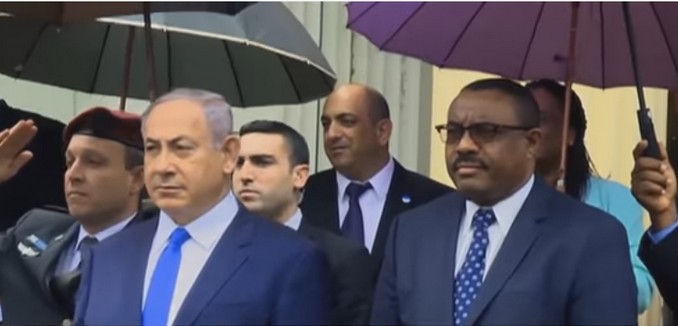Israel has never been in a better diplomatic position because of the new bonds it has forged around the world, a former State Department official wrote in a Reuters op-ed Thursday.
Josh Cohen, a former officer with the United States Agency for International Development, observed that Israel “is successfully developing close ties with an unprecedented number of countries – including many old enemies.”
One of the most notable is Egypt, which has had frosty relations with the Jewish state since their peace treaty was signed in 1979. Now, however, “Egypt even allows Israel to conduct drone strikes against militants on Egyptian territory” as part of their joint battle against ISIS’s Sinai affiliate and its allied terrorist group, Hamas. Egypt’s foreign minister recently visited Israel for the first time in nine years, and there is talk of a possible summit between Israeli Prime Minister Benjamin Netanyahu and Egyptian President Abdel Fatah el-Sisi.
Ties with Saudi Arabia, which does not official recognize Israel, also appear to be warming, partially driven by mutual concern over the nuclear deal with Iran. A number of Saudi business and political leaders have made visits to Israel.
In Europe, a new alliance has been formed between Israel, Greece, and Cyprus; their militaries hold “extensive air and naval exercises together.” Earlier this year, Netanyahu, Greek Prime Minister Alexis Tsipras, and Cypriot President Nicos Anastasiades held a three-way summit that “concluded with the creation of a de-facto geopolitical bloc between the three states.” The three countries are also discussing a pipeline project that will connect Israeli natural gas deposits to Europe.
Cohen also highlighted Israel’s growing trade and military ties in Asia, especially with India and China. Israel has sold $10 billion in military equipment to India in the past decade, making India the top foreign buyer of Israeli defense products. Last October, Indian President Pranab Mukherjee became the first Indian head of state to visit Israel.
Chinese investors invested around $500 million in Israeli startups in 2015, and the number could grow as high as $10 billion by 2020. China is also investing in transportation infrastructure in Israel, including a new port in Ashdod and a high-speed rail line connecting Ashdod to Eilat.
Netanyahu has also made it a priority to strengthen Israel’s commercial, diplomatic, and security relations with African countries. The prime minister convened a summit at the United Nations last week with at least 15 African heads of state and representatives, where he expressed his desire to share Israeli technology. He visited Uganda, Kenya, Rwanda and Ethiopia this summer, the first time in almost 30 years that an Israeli head of state had visited sub-Saharan Africa. Weeks later, the Republic of Guinea, a Muslim-majority African nation, restored diplomatic ties with Israel after a 49-year break.
The expanding ties with these nations, Cohen observed, show that “Israel’s diplomatic gains have never been greater.”
During his speech to AIPAC earlier this year Netanyahu noted that “Today we have diplomatic relations with 161 countries – more than at any time in our history.”
[Photo: FRANCE 24 English / YouTube ]




